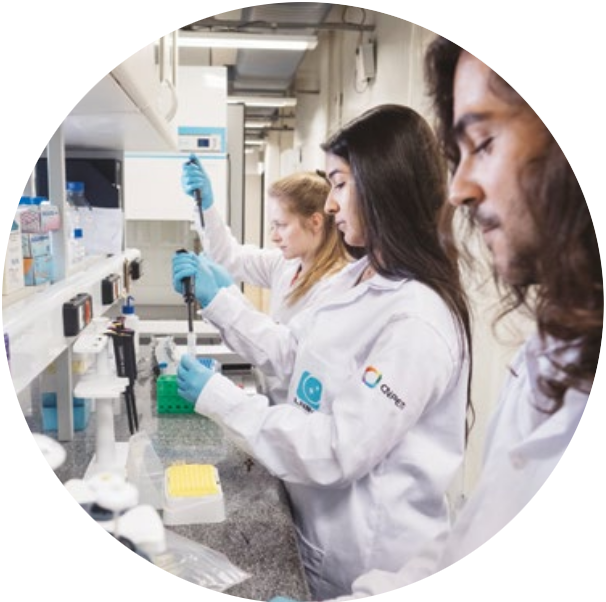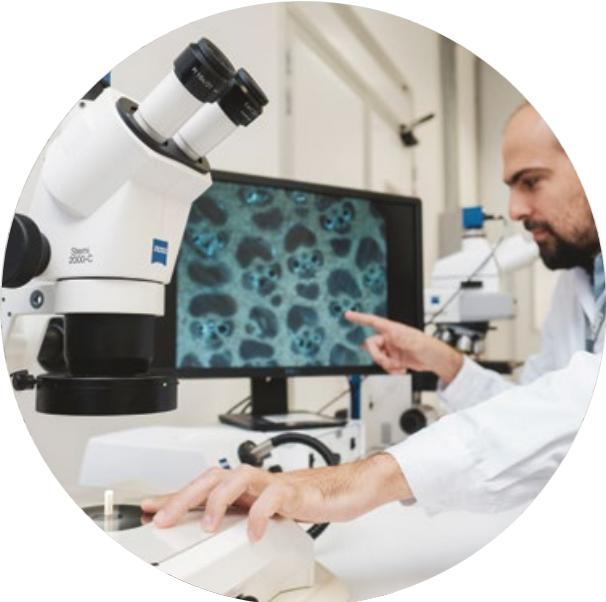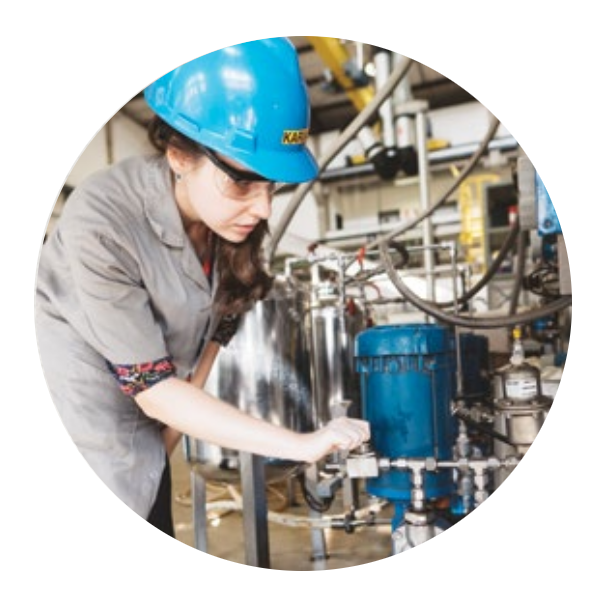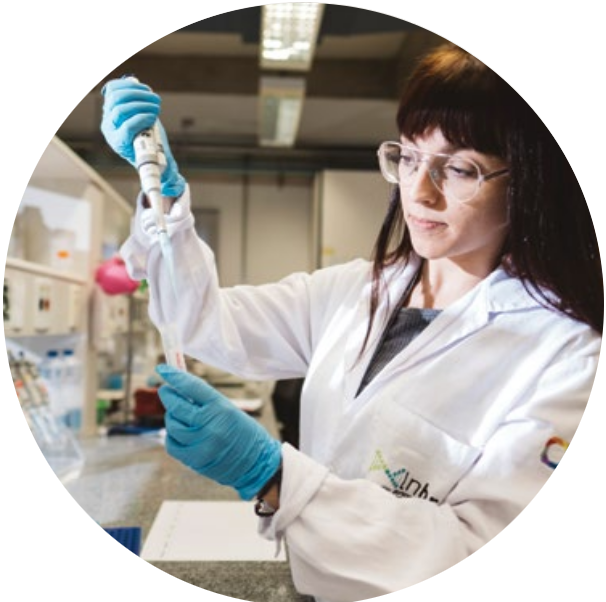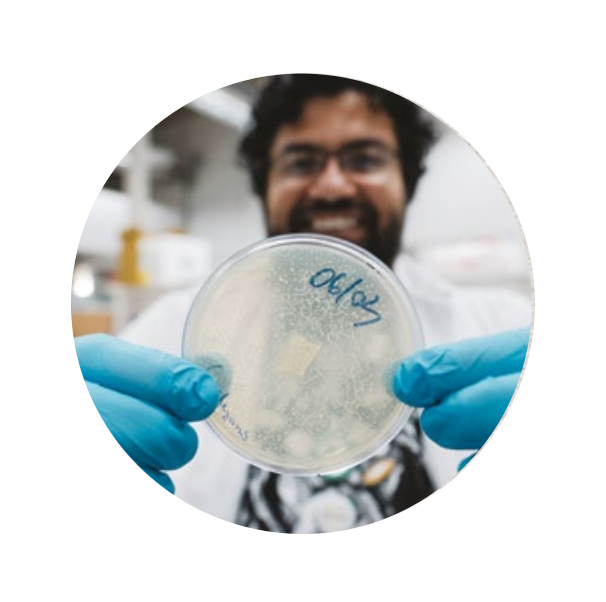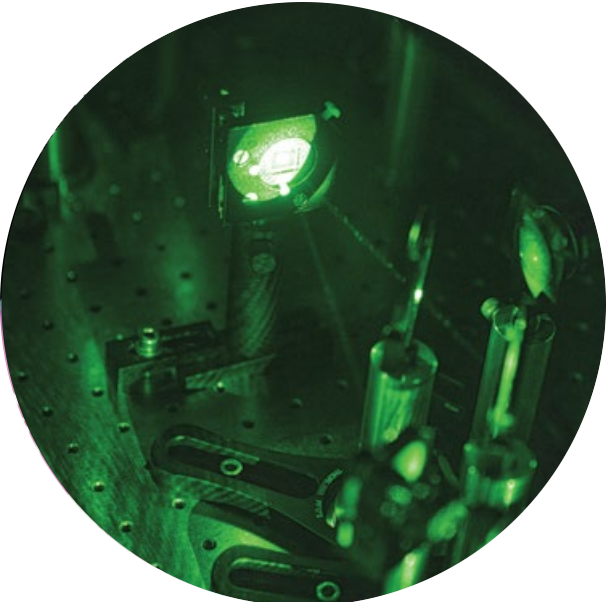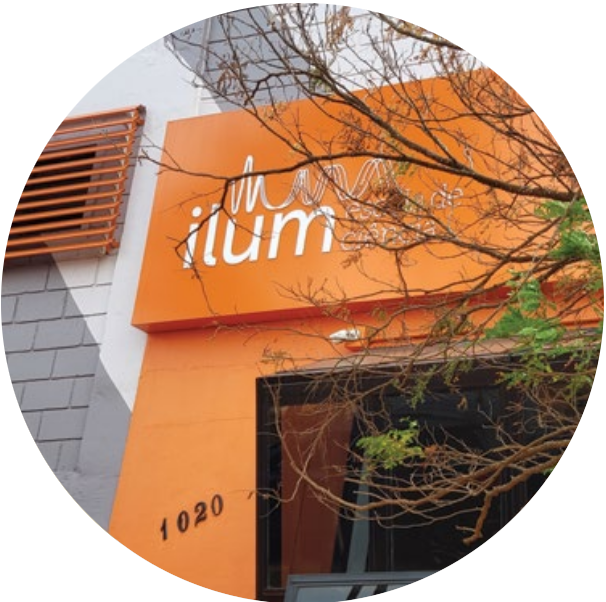The four National Laboratories of CNPEM: LNLS, LNBio, LNNano and LNBR, have a prominent role in Brazilian scientific production. Meet our main acting areas.
AREAS OF OPERATION
HEALTH
Increases in life expectancy and quality of life over the past century are intrinsically related to the advances provided by research, which have led to new diagnoses, medications, and treatments for diseases and other debilitating conditions. There are still many challenges to be overcome, as clearly seen in the global crisis caused by the Covid-19 pandemic. At CNPEM, this topic is addressed through multidisciplinary competencies that work to expand understanding of living systems, from the atomic scale to entire organisms. CNPEM investigates organic and inorganic materials in order to understand the molecular mechanisms that make it possible to find solutions for pathologies currently affecting Brazil’s public health system, as well as to master materials at the nanoscopic scale to develop electrical and electronic resources to support treatments and diagnostic devices. The Center’s internal projects include discoveries of new drugs and active pharmaceutical ingredients based on natural products; research on cancer, cardiovascular, neurodegenerative, and neglected diseases; research on and development of functional nanoparticles and nanodevices for the medical industry; and research and development of human organoids to reduce the use of lab animals. The Center also offers facilities with state-of-the-art equipment to the academic and business communities to study materials, along with professional follow-up by experienced researchers to best use and interpret the resulting data and its possible applications.
ENERGY AND RENEWABLE MATERIALS
Everything is moved by energy. As the world’s population and industry grow, demand for energy increases along with awareness that it must be generated sustainably to mitigate new environmental impacts resulting from production and consumption. CNPEM is a channel for research and development on new sustainable energy sources; for example, it conducts research on sugarcane bagasse and producing hydrogen from water. The overall objectives in energy research are to develop new materials technologically designed to reduce the carbon footprint and to promote the circular economy. Biotech platforms for advanced biofuels and industrial sectors will be able to obtain new biomass materials from industrial waste, microfluid systems customized for the oil and gas industry look for ways to monitor fuel quality while maintaining high performance as well as the environment, and nanophotonic devices will be able to transmit data using light. Using waste from the traditional sugarcane industry, the Center focuses efforts on generating bioelectricity, advanced biofuels, carbon nanoparticles, and conductive pathways for energy in flexible materials such as paper. Lignin and nanocellulose are also obtained from sugarcane bagasse to produce materials that can potentially be very strong and utilized in the aerospace, automotive, and defense sectors.

AGRICULTURE AND THE ENVIRONMENT
With research that focuses o n e valuating, p reserving, and remediating Brazil’s air, water, and soils, CNPEM directly responds to the challenges of agriculture and the environment. Low levels of organic matter in soils, frequent attacks by pests and disease, intensive use of imported chemical fertilizers, and high concentrations of pesticides are confronted by the development of customized microbial platforms, advanced studies of bacteria and fungi for fertilization and pest control in soils, and development of sensors, devices, and new materials to monitor and decontaminate the air and water. Many of the studies done at CNPEM utilize synchrotron light for real-time 3D observations which make it possible to understand fluid dynamics and nutrient interactions that are essential for soil and plants species, and in turn seek effective and sustainable solutions.

QUANTUM TECHNOLOGIES
Historically, miniaturization of electronic components has led to the development of increasingly powerful computers and at the same time, the search for understanding of matter on increasingly smaller scales. With the advancement of technology, the single-nanometer dimensions of semiconductor components led to the appearance of quantum phenomena, since quantum physics describes matter on the smallest scales. In this way, studying electronic behavior in confined spaces and how it relates to the electrical properties of materials simultaneously makes it possible to answer fundamental questions in physics while also developing new devices and applications that operate in quantum conditions. The understanding of matter on a very small scale, where intrinsically quantum aspects are emerging (quantum materials), is a new strand of nanoscience and nanotechnology, and these areas are considered strategic the world over. Quantum technology is a growing field, in which new devices are based on quantum mechanics, and there are numerous applications such as sensors, communications, and computing. Including Brazilian research in this area is fundamental for the country to contribute and absorb cutting-edge technological developments, and CNPEM’s quantum technology program includes research on and development of devices according to these advances.
EDUCATION
In 2021, CNPEM presented its newest initiative: the Ilum School of Science. This not-for-profit undergraduate school funded by the Brazilian Ministry of Education (MEC) was created to train professionals for careers in areas that require a solid scientific and technological foundation. Ilum’s curriculum is based on in-depth, innovative science education, founded on active teaching methodologies, coupled with experienced and dedicated teachers and a differentiated infrastructure. Its goal is for students to become professionals engaged with interdisciplinary problems, with solid training in mathematical and computing languages, and knowledge in the life and material sciences, humanities, and entrepreneurship, that can be applied to many current topics. Ilum offers a single three-year bachelor’s degree in science, technology, and innovation, with progressive immersion in CNPEM’s environment for state-of-the-art research and technological innovation. The course is free for students; admission are based on ENEM score, a letter of intent written by the candidate, and finally an interview. The first student admission process began in October 2021, with 40 slots available each year. The school’s ideal student profile is a curious young person with a genuine interest in science.

